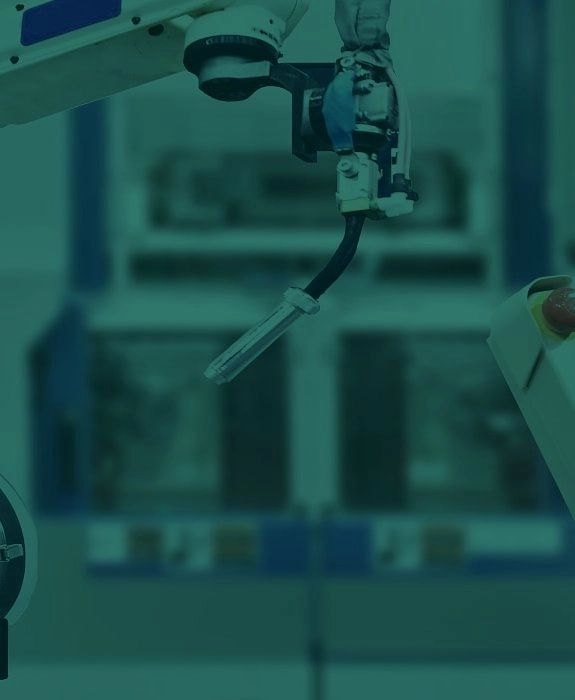Table of Contents
The manufacturing sector is being completely revolutionized by the rise of artificial intelligence. Take the example of the FANUC plant, in Oshino, Japan. The town, according to Forbes, is home to 9,000 people, and at any given year, the robots manufactured at that plant outnumber the humans by roughly seven to one. The FANUC plant is one of a kind where 24/7 production is a reality and advanced AI oversees the production of computerized offspring capable of machine learning and computer vision.
Industry 4.0
We are currently in the age of Industry 4.0, which is marked by a significant transformation in the way we produce products through the digitization of manufacturing processes. Industry 4.0, as the name suggests, is the fourth age of manufacturing that we are in. The first, the Industrial Revolution, resulted from mechanization by harnessing water and steam energies; the second from the development of mass production and assembly lines using electricity; and the third from the adoption of computers and automation into mass production. Industry 4.0 expands upon the third age of manufacturing by adding systems fueled by data, machine learning, and AI algorithms.
Smart Maintenance and Quality 4.0
AI algorithms and artificial neural networks are now being used in predictive maintenance to save billions of dollars in manufacturing processes. Downtime can cost manufacturers up to an estimated $50 billion annually, and equipment failure is the cause of 42% of unplanned downtime. But customers want their products to be faultless despite the extremely short time-to-market expectations. This has given rise to the use of AI algorithms to identify production issues that have the potential to impact quality, such as deviations from recipes, and subtle abnormalities in machine behavior. Quality 4.0 will ensure that production teams have all the data they need to develop products and processes in a tactical and efficient manner.
Industrial AI Is the Present and the Future
Stephen Ezell at the Information Technology and Innovation Foundation had this to say,
If you’re stuck to the old way and don’t have the capacity to digitalize manufacturing processes, your costs are probably going to rise, your products are going to be late to market, and your ability to provide distinctive value-add to customers will decline.
Adapting AI to the manufacturing sector is the only way to stay in a competitive market that is looking for the perfect product and not willing to wait for it. Generating accurate reports on the condition of manufacturing machines, AI algorithms can alert you to downtimes before they even occur. Our prediction is that investment in AI will only increase in the coming years. With advances in machine learning, manufacturers can simply input design goals and other parameters into generative design software and find solutions for product design in a matter of days.
Stay ahead of the game with our helpful resources

4 digital solutions to address common application performance issues
High network latency, memory leaks, slow page loads, heavy CPU usage, and unresponsive servers are all typical performance issues we’ve experienced at some point when using or accessing digital applications. With how easy they occur in projects across verticals, you might be wondering whether the development teams behind these programs have done enough due diligence prior to the release. But human errors and oversight aren’t always the culprit. The reality is that while developers can strive to develop a fully functioning program with virtually no apparent faults upon delivery, no software is truly error-free. Even the most rigorously tested applications

6 useful tips for creating more robust application lifecycle management
As digital technology becomes the norm, software acquisition is now key to gaining a competitive edge in today’s market. Be it as a value offering tailored to consumers or a productivity tool to run complex processes, custom software undeniably helps companies drive growth and deliver value more efficiently. Just as necessary as having a proprietary application is prescribing a standard procedure to govern and maintain its utility. This is to ensure that your business can develop or adopt the right type of software—one that can fully cater to your business needs while keeping disruption to a minimum across critical milestones.

5 major roadblocks businesses must overcome when transitioning into a new software environment
As the business landscape becomes increasingly saturated, staying ahead of the curve often means embracing disruptive technologies to meet the fickle market demands. In most cases, this entails knowing when to pivot your current strategy to an entirely new solution. But recognizing the importance of digital shift is one thing; implementing the necessary IT upgrade is another. A global survey by Deloitte has found that although 87% of companies manage to identify the impact of digital trends on their industries, only 44% have adequately prepared for the coming disruptions. This vast disconnect between organizational expectations and conditions in the field

Is cloud computing the answer to better software development?
Cloud computing is perhaps not a term often heard in daily conversations, but it is one with a far-reaching impact on our technological needs. From expansive options of online data storage to numerous suites of web-based productivity tools like Google Workspace, nearly everyone has used a cloud-enabled technology. Over the last decade, this high degree of versatility also underpins the rapid cloud uptake among businesses. In fact, one survey has found that 94% of companies have already shifted their computing workloads on cloud platforms to varying extents. Unsurprisingly, the market size for cloud technology continues to grow exponentially. With a



